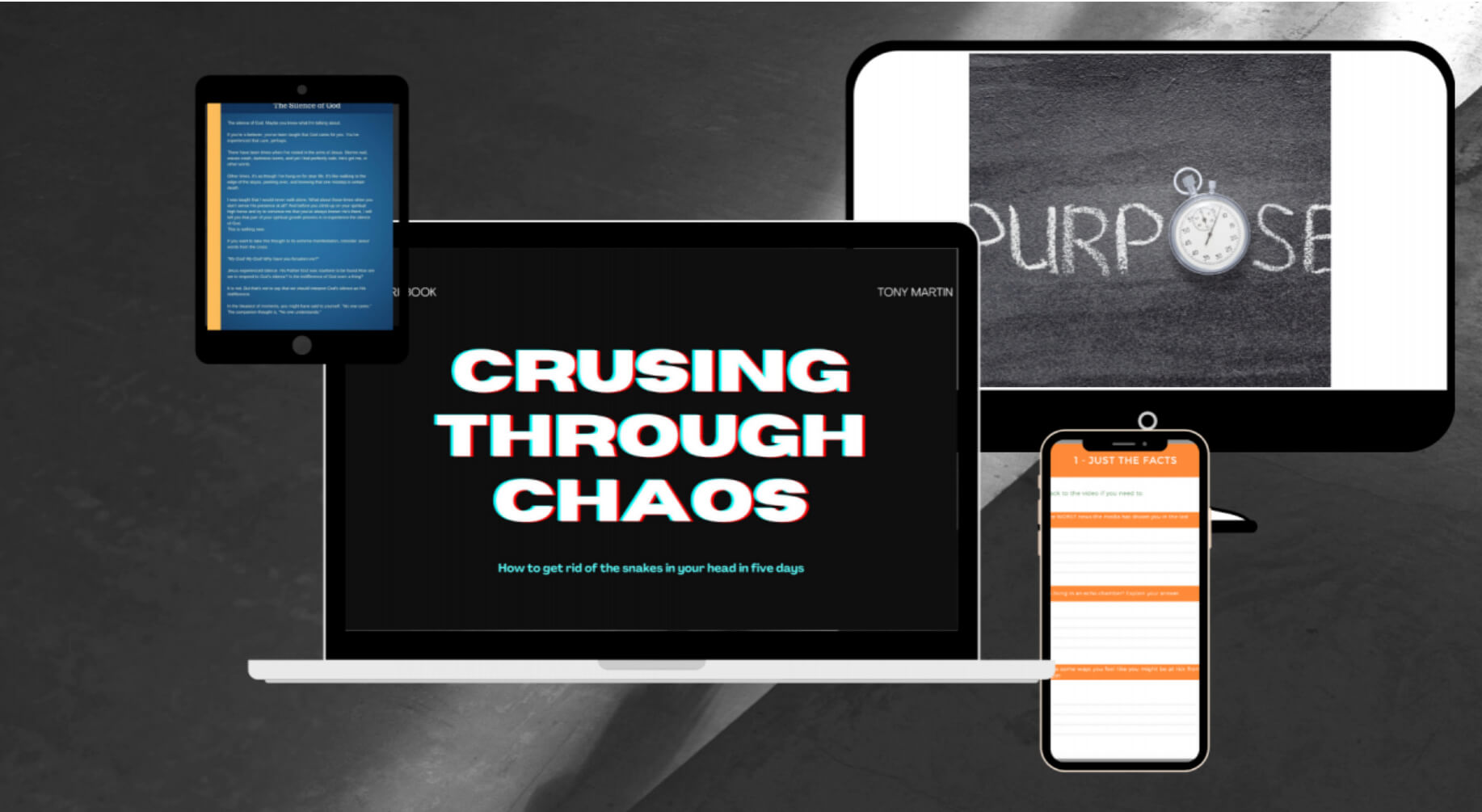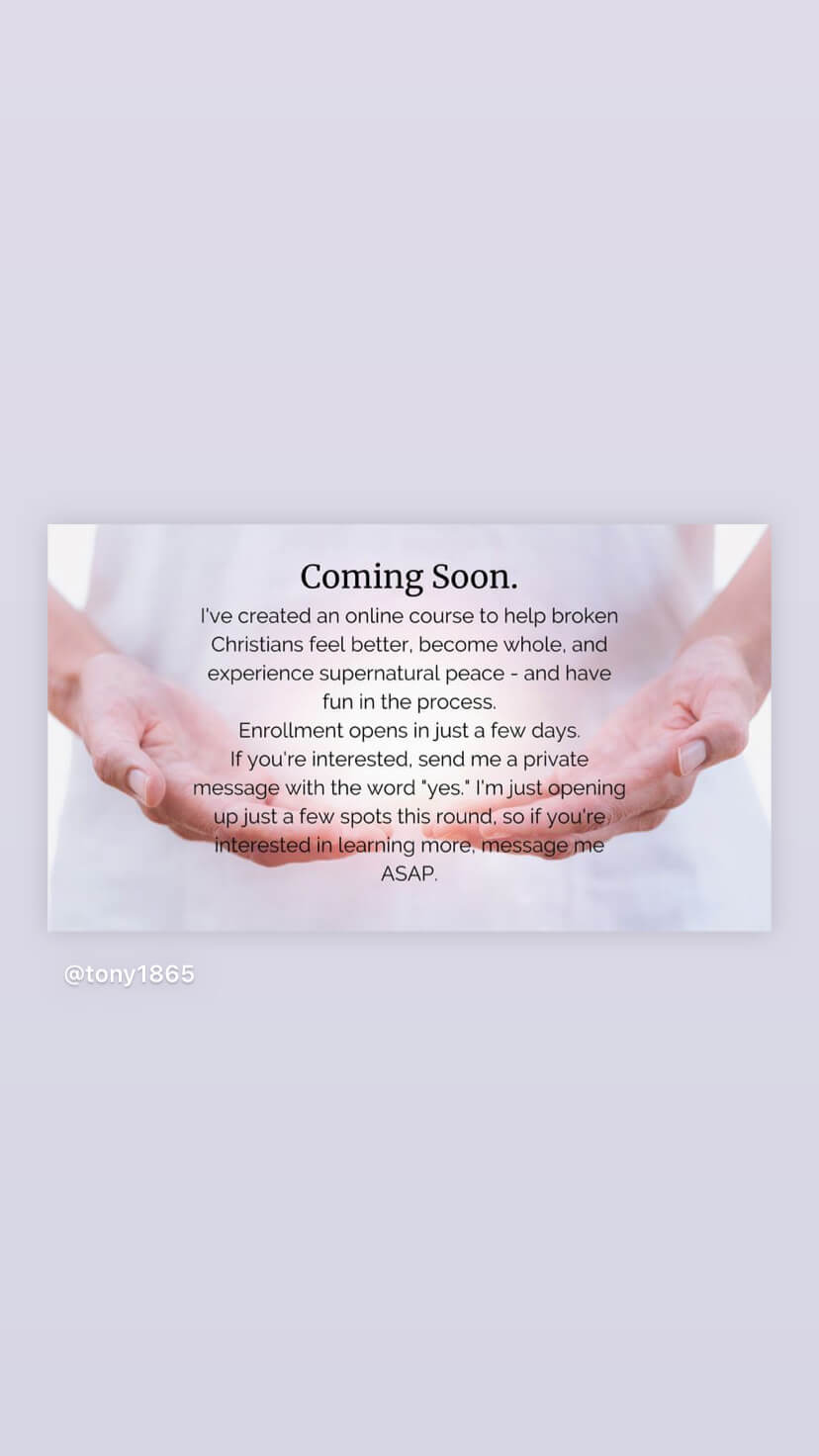Cruising through chaos, revisited.
So I’m sitting here in a local restaurant, Primos Cafe, waiting on Teresa to finish up physical therapy. She’s doing pretty well after her knee replacement a couple of weeks ago.
While sitting here, I’ve been perusing social media. Y’all, I’m telling you – while Covid cases are plummeting here in my neck of the woods, I’m struck with just how many people are angry, upset, scared, threatened – actually all of the above. Terms like socialism, communism, Nazism, are all thrown around so much that they’re meaningless. Folks are bemoaning the state of the country and of the world.
At the root of this, I believe, is simple fear. I won’t analyze what kind of fear, or how it manifests itself, but it seems to be a fear of chaos, of things horribly out of order, uncontrollable, and prevalent. No one seems immune.
Some time back I developed a workshop/course called Cruising Through Chaos. My intent was to equip folks with the proper emotional, mental, and spiritual tools to not only survive the chaos we find ourselves in, but to even thrive in the midst of it.
I wanted to call it to your attention again.
This is a paid program. It’s worth a nominal investment if you think you or a loved one can benefit.
You’ll find it on my course platform, Transformational Encouragement Academy.

Some questions about it always crop up. Let me address some of them:
Is this just another self-help rah-rah program?
That term, self-help, just doesn’t explain what I want to see in you. There are a couple of gazillion self-help programs out there on every topic imaginable. I’m not knocking them … I’ve been a fan of folks like Zig Ziglar, Jim Rohn, Brian Tracy, Michael Hyatt, and scores of others like them. What makes this different, methinks, is that it is grounded heavily in scripture, and the principles I share will bear that out. But if it motivates you, that is a good thing.
So is this workshop just for Christians?
It’s not intended to be. I’d like to think the principles I share are universal. But, if you want to onboard with me, you do need to understand the context I’m coming from. I won’t apologize or back down from that. I’m not trying to “proselyte.” I’m an absolute truth kind of guy – truth, by definition, is not relative. I intend to bombard you with truth as revealed in scripture, but in a very applicable, meaningful way.
Is this going to smack of anything political?
Not just NO but HECK no.
Can I anticipate and expect life change in five days?
You know I’d offer a resounding “YES” to that question. Here’s why: we are all products of decisions we’ve made, and often we make a decision in the space of 30 seconds that can totally alter the trajectory of our lives. By that same token, we can take steps right now that will do the same thing. Understand this – if you embrace the principles I share, and follow them to the bone, you will absolutely see change in five days. My disclaimer? Personal growth is a process. You’ll be hammering on that all the days of your life. My goal is to plant that seed, watch it germinate, and then see that little green plant peek its head above the soil. Water and fertilizer are your responsibility then, but the growth has already begun.
I’ve tried to “fix” myself in days past. It didn’t last. What would make this any different?
Glad you asked. You won’t like my answer, but you still gotta love me. If I don’t provide you with the proper tools and teach you the proper skill set, then I’ve failed. If I don’t give you the best I have, which has been prayed over and fretted over, then I’ve blown it. But if I give you the best I have and you don’t take advantage of it – say you work one or two lessons and bail, or slough through the workbook and journaling, I’m not the one who failed. It’s going to come down to the “D” word – discipline. My sense is that anyone can manage five days. That’s the reason I wanted to put those constraints on it. It’s not supposed to be a quick fix, but I did want you to see results quickly. I’m not beating up on you. I totally get it. If you blow it, just take a break and start over. Like Zig said, “Failure is an event, not a person.”
Can I share this with others?
Well, you should. I think there’s some potential for some small group study here. Iron sharpens iron, y’know, and that extra layer of accountability sure wouldn’t hurt.
If this is so helpful, why do I have to pay for it?
Fair enough. On my end, there were development costs, hosting costs, and all sorts of other intangibles. I want this to be more than an expensive hobby for me! There also is some significant sweat equity involved in putting this thing together. I’d like to make some profit. I’m just being frank. Finally, there is seldom, if ever, something for nothing. It’s often said “you get what you pay for.” I wanted for you to have more than you paid for. I priced it so you can just grab it and go. You’re welcome!
What makes you an expert?
Simple. My story is your story.
We all deal with challenges, do we not? Life is full of joy and heartache in equal measure. Everyone faces something.
Many people respond to life with despair, or at least a sense of hopelessness.
Well, I am here to stand before you and declare that hopelessness is not an option.
I’ve had life experiences that were killer, and by God’s grace, they’ve been overcome. I’ve added those experiences to this workshop.
I am here to tell you that what I have for you is FIRE.
Check it out. Be blessed.

